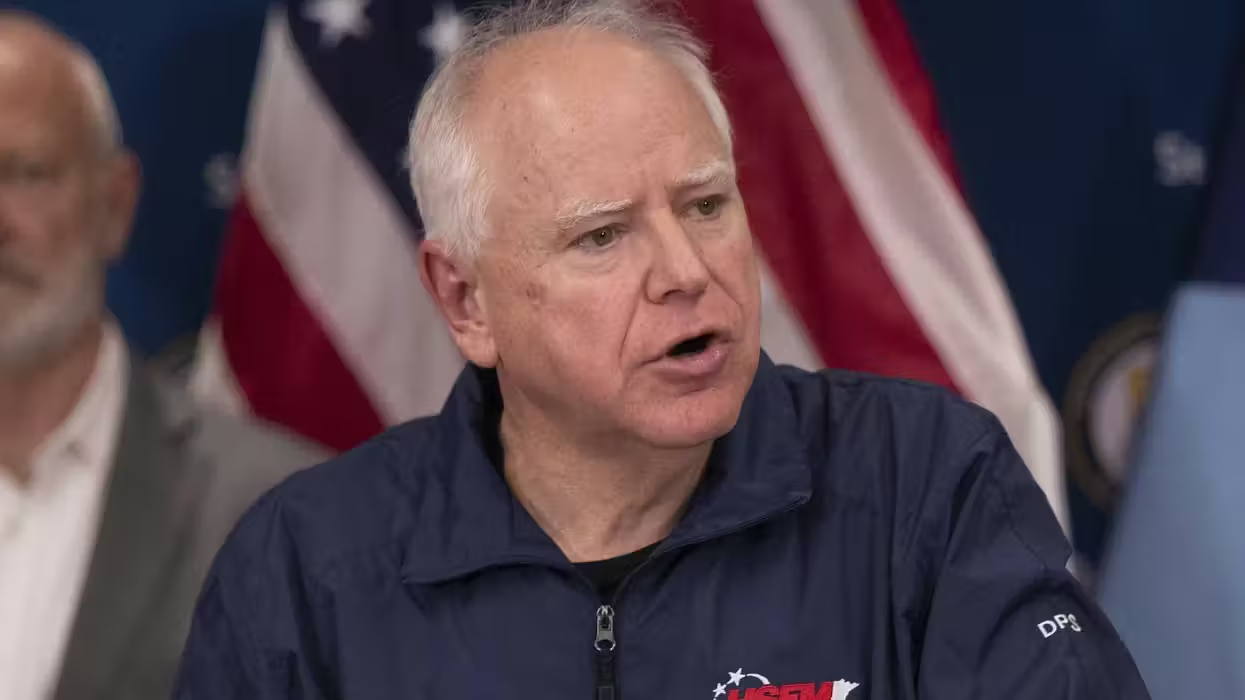U.S. foreign policy has always swayed between two polar extremes: active involvement in the affairs of other states, fashioning the international system according to our own high moral values, and isolationism.
Henry Kissinger, who summed up this contradiction in his seminal book, "Diplomacy," assumes that American foreign policy in the Cold War was not sufficiently attuned to the realities of international relations by being excessively moralistic.
With this tendency ingrained in the American ethos, how should the U.S. respond to the challenges posed by Latin America? The answer should be clear for our leadership: disengagement.
 U.S. President Barack Obama answers a question during a forum on Inclusive Economic Growth and Development at the Old Custom House in San Jose, Costa Rica, Saturday, May 4, 2013. Concluding his three-day visit to Mexico and Costa Rica, Obama cheered Mexican economic advances and pressed for other Central American leaders to deal with poverty and security, while reaching out to a politically powerful Latino audience back home. Credit: AP
U.S. President Barack Obama answers a question during a forum on Inclusive Economic Growth and Development at the Old Custom House in San Jose, Costa Rica, Saturday, May 4, 2013. Concluding his three-day visit to Mexico and Costa Rica, Obama cheered Mexican economic advances and pressed for other Central American leaders to deal with poverty and security, while reaching out to a politically powerful Latino audience back home. Credit: AP
Almost all polls show that we, as a nation, have grown increasingly weary of calling the shots in far-flung corners of the world at the cost of American lives. And such reluctance is understandable.
Before Obama’s stewardship, Washington’s voice used to carry more clout because we had the respect of its partners. Now it seems that the more the current administration acts, the more it backfires against our own strategic interests.
Just look at the footprint left by Washington in the countries in which it has staged or has participated in humanitarian interventions.
Libya is falling apart at the seams, torn between rebel groups that seek to break the country in multiple state-like entities ruled by tribal councils. The Benghazi disaster is a more than eloquent example of a how our botched interventions directly affect American lives.
Or Egypt, one of America’s most resilient allies in the Middle East since the 1970s, who is in worse shape than before the Arab Spring. The current strongman, Abdel Fattteh al-Sissi, despite having embarked on the fast track to establishing a military dictatorship, managed to coax Washington into receiving financial and military aid in the form of 35 Apache helicopters and $650 million.
The US Should Stop Giving Others Morality Lessons
Under the Obama administration, the U.S. has squandered its ambition to act like a moral beacon for the world.
[sharequote align="center"]Under Obama, the U.S. has squandered its ambition to act like a moral beacon for the world.[/sharequote]
Nevertheless, despite being plagued by compromising scandals (from Wikileaks to Edward Snowden), the administration has continued to apply a contradictory rhetoric with respect to human rights, by denouncing the crimes of others without accounting for its own.
If our country is still a democracy, ordinary Americans should be listened to and their wishes of disengagement should be respected. Fortunately, this does not have to mean outright isolationism; what we need now is a return to Richard Nixon-era realpolitik.
His strategic engagements with China, emphasizing trade links and economic partnerships without attempting to influence Beijing’s human rights record, is a great example we ought to follow now in our dealings with others.
Accordingly, our relation with South America should be based more on supporting mutually beneficial solutions, such as strengthening business links and encouraging exports rather than on back room dealings, NSA eavesdropping and fomenting dissent. With our economy enjoying still fickle growth and unemployment still far from where it should be, Washington would greatly benefit from tapping into many Latin emerging markets it has criticized.
 Bags simulating to contain corpses of women are seen during a protest against the killing of females by males in Tegucigalpa on April 28, 2014. According with Human Rights organizations Honduras has one of the highest femicides rate in the world, about 79 homicides per 100,000 inhabitants. AFP PHOTO/Orlando SIERRA.
Bags simulating to contain corpses of women are seen during a protest against the killing of females by males in Tegucigalpa on April 28, 2014. According with Human Rights organizations Honduras has one of the highest femicides rate in the world, about 79 homicides per 100,000 inhabitants. AFP PHOTO/Orlando SIERRA.
If it hopes to regain the trust and credibility of the world community, the U.S. should therefore stop preaching from the pulpit and engage in sober talks meant to deepen economic links with Latin America. A first step would be for the State Department to scrap drafting scathing Human Rights report for countries it dislikes, while overlooking the crimes of friendly regimes.
Honduras is one such example: although a significant number of journalists (29) have been killed there since the 2009 coup, the U.S. does not seem preoccupied, focusing instead on trumped charges against Ecuador’s human rights record. Bilateral relations hit a new low after Washington lashed out when Ecuador offered Snowden asylum.
Burning bridges should not underpin U.S. foreign policy in a time when our country needs to rebuild its international standing after the disastrous Obama administration.
At the same time, the U.S. should stop politicizing human rights inside the Organization of American States and the Inter-American Commission of Human Rights (IACHR). In a forthcoming June summit, Washington should accept the recommendations put forth by a working group of the Permanent Council.
Among their recommendations, a new model for the IACHR was proposed that would guarantee balanced promotion for all human rights aspects. Why? Because in its current form, the system asymmetrically privileges only one of them – freedom of speech - while underfinancing economic and social rights which are essential for developing countries.
No true patriot can stand idly by and encourage that this situation continues. Countries can respect a strong economic power that puts business first, but they cannot respect a country that preaches human rights standards that it isn’t meeting itself.
–
TheBlaze contributor channel supports an open discourse on a range of views. The opinions expressed in this channel are solely those of each individual author.


 U.S. President Barack Obama answers a question during a forum on Inclusive Economic Growth and Development at the Old Custom House in San Jose, Costa Rica, Saturday, May 4, 2013. Concluding his three-day visit to Mexico and Costa Rica, Obama cheered Mexican economic advances and pressed for other Central American leaders to deal with poverty and security, while reaching out to a politically powerful Latino audience back home. Credit: AP
U.S. President Barack Obama answers a question during a forum on Inclusive Economic Growth and Development at the Old Custom House in San Jose, Costa Rica, Saturday, May 4, 2013. Concluding his three-day visit to Mexico and Costa Rica, Obama cheered Mexican economic advances and pressed for other Central American leaders to deal with poverty and security, while reaching out to a politically powerful Latino audience back home. Credit: AP






